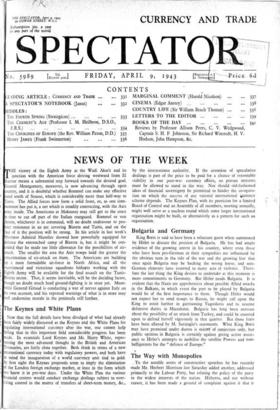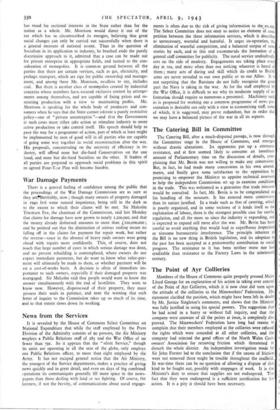The Way with Monopolies
. To the notable series of constructive speeches he has recently made Mr. Herbert Morrison last Saturday added another, addressed primarily to the Labour Party, but relating the policy of the party to the widest interests of the nation. Hitherto, and not without reason, it has been made a ground of complaint against it that it
has stood for sectional interests in the State rather than for the nation as a whole. Mr. Morrison would direct it out of the rut which has so circumscribed its energies, believing that great social changes can only be carried out successfully when there is a general measure of national assent. Thus in the question of Socialism in its application to industry, he brushed aside the purely doctrinaire approach to it, admitted that a case can be made out for private enterprise in appropriate fields, and turned to the consideration of monopolies. It is common ground between all the parties that there are certain services, such as gas, electricity, and perhaps transport, which are ripe for public ownership and management, and among these Mr. Morrison, needless to say, includes coal. But there is another class of monopolies created by industrial concerns whose members have.secured exclusive control by arrangements among themselves, and are capable of fixing prices and restricting production with a view to maintaining profits. Mr. Morrison is speaking for the whole body of producers and consumers when he says that the State cannot tolerate a purely restrictive policy—one of "private unenterprise "—and that the Government in such cases must either take action to stimulate industry to more active production or take control itself. His speech should help to pave the way for a programme of action, part of which at least might be implemented by men of good will in all parties who are capable of going some way together in social reconstruction after the war. His proposals, concentrating on the necessity of efficiency in industry, will offend none but die-hard Conservatives on the one hand, and none but die-hard Socialists on the other. If leaders of all parties are prepared to approach social problems in this spirit an agreed Four-Year Plan will become feasible.























 Previous page
Previous page